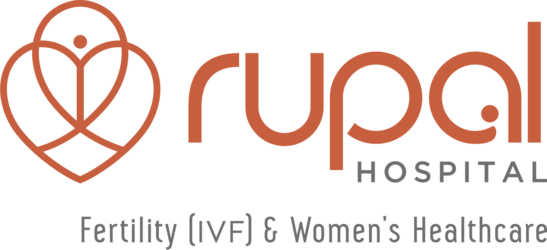Our Specialities
Maternity and Delivery Packages
Our exclusively and comprehensively designed motherhood packages offer a one-stop solution to address all the needs of expecting moms during 9 months, delivery, and after pregnancy. Everything includes consultations, routine scans, standard laboratory investigations, educational sessions such as nutritional and physiotherapy sessions, antenatal classes, lactation counseling, delivery, hospital stay charges, newborn consultation, basic baby tests charges, baby bathing classes, and much more are included.
We offer room category wise all-inclusive packages for normal and cesarean delivery and the premium luxury package too. We pamper you to no end with little surprises that celebrate this joyous moment in your life.
Contact us at our reception in the Waiting Lounge (1st Floor) to know about the exact details of all packages and schedule your free facility tour.
Antenatal Fitness Classes
Our high quality comprehensive twice-weekly pregnancy fitness classes led by a well trained and experienced physiotherapist will help you prepare mentally, physically, and emotionally for birth and beyond.
What does it include?
-
Yoga and Meditation
-
Mild Aerobics & Floor Exercises
-
Relaxing and Happy Workout with Physioball
-
Dynamic Stretches
-
Garbhsanskar Sessions
-
Pregnancy Dance Sessions
-
Breathing exercises
-
Workout with dad-to-be
Contact us in the Physiotherapy and Fitness Room (5th Floor) to know the exact details of various Antenatal and Postnatal Fitness Packages.
Pregnancy & Childbirth

Introducing First time in South Gujarat
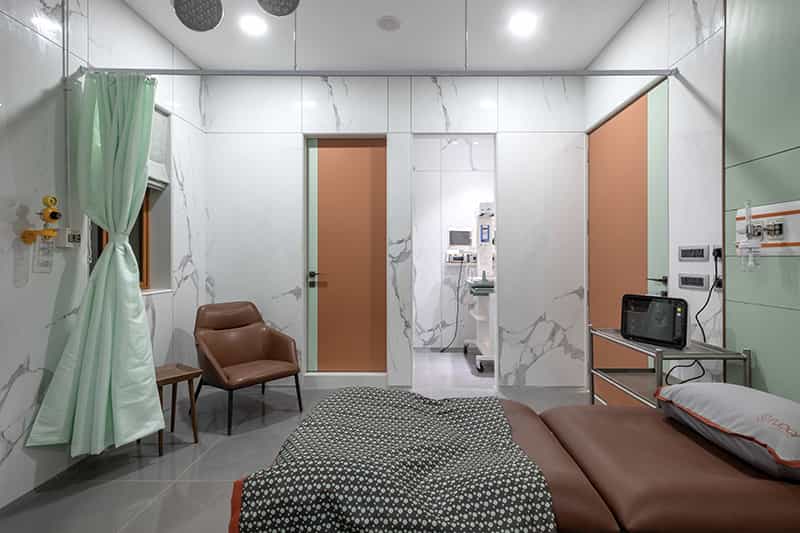
Birthing Suite
Our birthing suite is a result of an in-depth thought process to deliver the safest experience and the best ambiance on the most important day of your life. It is well equipped with the most efficient medical facilities to monitor you and your baby carefully. To name a few are the multi-positioning motorized delivery bed that adjusts to accommodate various birthing positions, cordless fetal monitoring, central oxygen supply, and cardiac monitor. To have a positive distraction from labor pain, you can enjoy a movie or delivery demonstration videos. You can also customize the ambiance with a selection of your favorite music tracks to further heighten a sense of peace and calm.
Dad - The Birth Companion
Dads are acutely aware that birth opens the door to their new life as a parent. Though it’s a joyful occasion, childbirth comes with immense stress. But when the mother is waiting for the fascinating moment, the presence of her loved one brings in much comfort and relief. We have taken care of this simple yet important aspect while designing our birthing suite.

Bubble Baby Spa
Bathing your baby is an excellent time to bond, as your tiny new family member enjoys the sensation of warm water on his/her skin. Yet this common parenting ritual often comes with questions, and sometimes anxiety, about when and how to do it well. So we are here with the new concept of “Baby Spa” room, where our trained staff will give you a demonstration on an individual basis about baby bathing and gentle massage. We are sure this is going to be especially beneficial to you at home in this COVID 19 times when you are still not comfortable to allow a professional massager lady at your home.
The Milky Care
Breastfeeding is warmth, nutrition, and love all rolled into one. Breastfeeding plays a crucial role in your baby’s health, growth, and development and has benefits for you. To successfully feed your baby, you need special counseling, support, and reassurance. The certified lactation consultant at our lactation management clinic will Provide you authentic information and will demonstrate breastfeeding techniques and will solve all your queries related to this greatest gift from you to your baby.
FAQs
What services are included in obstetrics at Rupal Hospital?
Rupal hospital has an incredible team of most friendly doctors, with expertise in antenatal care and childbirth, antenatal sonography and fetal medicine, nutrition, antenatal exercises, physiotherapy, and our well trained and experienced nursing staff provides you with comprehensive prenatal care to postnatal care. We are also supported by state-of-the-art NICU infrastructure.
We make every effort to ensure your comfort and safety in our fully equipped delivery suite and state of the art monitoring types of equipment and a birthing bed.
When should I start consulting an obstetrician?
Most women meet with their obstetrician for the first time approximately 6 weeks after their last menstrual period. At your first appointment, we will confirm your pregnancy and perform an exam to measure your overall health and wellness. We may perform an ultrasound if you’re unsure how far along you are in your pregnancy or have early pregnancy bleeding or lower abdominal pain. You will be advised to undergo necessary antenatal blood tests.
Typically, you’ll have prenatal appointments once every four weeks for the first 28 weeks of pregnancy, then every other week from 28 weeks to 36 weeks. You’ll have weekly check-ups for your final weeks of pregnancy until your baby is born.
Your routine ultrasonography schedule
At 11-13 weeks (Genetic scan plus double markers).
At 18-22 weeks (Anomaly scan-3D/4D sonography).
At 34-36 weeks (Growth scan).
If your pregnancy is classified as high-risk, you’ll have more frequent
appointments.
What does high-risk pregnancy mean?
High-risk pregnancies are those where there is an increased chance of a health problem for you or your baby. You have more frequent appointments and a few extra tests so we can keep a close eye on your and your baby’s health. Our obstetrician’s team is experienced and expert in providing obstetric care for normal, low-risk pregnancy and all high-risk pregnancy issues.
High-risk pregnancies include:
- Twins or multiple babies.
- Mother over the age of 35.
- Existing health conditions like diabetes, thyroid, high blood pressure, or other medical condition.
- An overweight or obese mother.
- Previous history of repeated pregnancy losses or pregnancy complications.
What is a painless delivery?
Becoming a mother is the start of a wonderful journey. However, the crossing over often involves an excruciatingly painful birthing process. Painless delivery or ‘Epidural Analgesia’ is nothing but an option for normal delivery.
Epidural anesthesia is administered through an injection on the lower back of the mother. The drug takes about 10-15 minutes to take effect. This is a good option for women with a lower pain-bearing capacity, who would otherwise opt for a C-section.
At our hospital, the process of childbirth can be made most comfortable, smooth painless by using epidural anesthesia by our highly experienced anesthesia team.
Do you have Stemcell banking collection facilities at Rupal Hospital?
Yes
Fertility & IVF
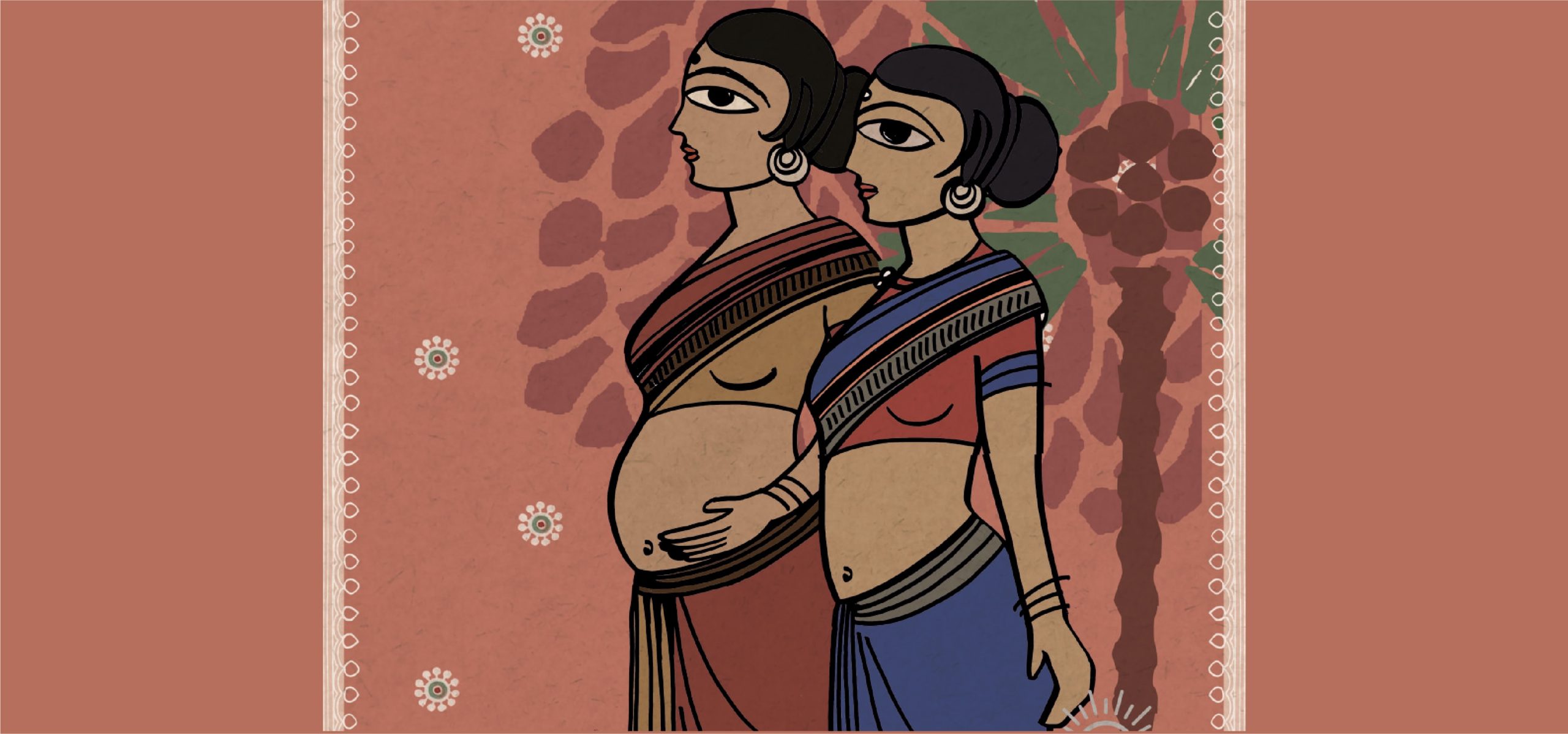
If you have fertility issues, you’re not alone: About 10 percent of women have trouble getting or staying pregnant. At Rupal Hospital a Fertility and IVF treatment center in Surat, we offer you our best clinical expertise with specialized yet personalized treatment to offer you the best chance for a successful pregnancy.
Founder of Rupal Hospital, Dr. Malti Shah, very senior and renowned obstetrician and gynecologist of south Gujarat, was a pioneer of fertility care and treatment in south Gujarat since the beginning of old Rupal Hospital. At present, our fertility and IVF expert, Dr. Rupal Shah, is a creator of thousands of happy families through its sister concern Blossom Fertility and IVF Centre. 1000+ IVF cycles are done, and more than 650 plus IVF babies are delivered per year across the world by her Blossom IVF treatment centre in Surat.
What causes fertility problems?
There are several reasons why you may not be able to get or stay pregnant. Sometimes infertility has to do with a woman’s reproductive system, problems with a man’s sperm, or a combination of both factors or unexplained infertility.
Female Causes
- Problems with ovulation-hormonal imbalance, Polycystic ovarian disease(PCOD), Endometriosis.
- Poor ovarian reserve due to advanced age, premature ovarian failure, or other causes.
- Blocked fallopian tubes.
- Uterine problems- fibroids, endometrial polyps, thin endometrium.
- Recurrent miscarriages.
Male Causes
- Low sperm production or poor motility of sperm due to hormonal, genetic, or immunologic causes.
- Varicocele (a condition that affects the number or shape of the sperm).
- Childhood infections involving tests, cancer treatment.
- Occupational hazards, environmental adverse effects.
- Lifestyle – excessive use of alcohol, smoking, caffeine, obesity, very tight undergarments.
Which fertility treatments are offered at Rupal Hospital?
Our expertise in fertility treatment and cutting edge technology includes right from basic fertility workup and treatments like ovulation induction, follicular monitoring, diagnostic laparoscopy, hysteroscopy, and Intra-uterine insemination (IUI) to most advanced fertility treatments like:
- In Vitro Fertilisation (IVF).
- Intracytoplasmic Sperm Injection (ICSI).
- TESA-MESA (advanced treatment for severe male infertility).
- Pre-implantation genetic diagnosis (PGD for repeated IVF Failure, Recurrent abortions, and to rule out ant genetic problems in your offspring).
- IVF with donor eggs/sperms or embryos.
- Gestational surrogacy treatment.
- Egg/sperm/embryo freezing.
What is the difference between IUI and IVF?
IUI and IVF (Test-tube baby treatment) are different procedures.
IUI (Intra Uterine Insemination): In this process, an egg is not fertilized outside the human body, but after processing the semen sample in an andrology laboratory, washed semen sample is directly inseminated inside the female uterus using a thin tube and fertilization of egg and sperm is allowed to occur naturally inside the fallopian tube of the female partner. You should expect a 15-20% Success rate per cycle in IUI.
IVF (In Vitro Fertilization): Here, female eggs are taken outside the human body. After fertilizing them with male sperms in an embryology laboratory in incubators, the embryos are cultured for 3-5 days. Then 2-3 healthy embryos are transferred inside the female uterus for further growth. The success rate varies according to the reason required for IVF. The overall success rate is higher in IVF treatment, ranging from 45 to 65% per cycle.
Why should you choose us for your fertility treatment?
We offer individual attention and one-on-one care, with the ultimate goal of helping you conceive by offering the best services and most sophisticated, effective treatments. also take care of your entire pregnancy once you conceive. Once you are conceived, we ensure that you don’t have to shift to another doctor and that your pregnancy journey is with a trusted expert, from start to finish.
Gynaecology

Women in Surat and surrounding areas and even across the globe have been relying on us for quality gynecology care since 1970. Rupal Hospital offers a range of detailed and complex gynecological services to meet today’s modern woman’s healthcare needs. We provide comprehensive gynecological care throughout the stages of a woman’s life, beginning in the teenage years with her first pelvic examination into her childbearing years, menopause, and retirement. We utilize the latest medical technology to make your visits as comfortable as possible.
What is abnormal uterine bleeding and what are causes for excessive bleeding?
Uterine bleeding is considered abnormal if it happens when you are not expecting a menstrual period or when menstrual flow is lighter or heavier than normal or associated with severe menstrual cramps and pain. It is also considered abnormal if it occurs during a life stage when it is unexpected, such as before 10 years of age, during pregnancy, or after menopause.
Causes of Excessive Bleeding:
hormonal imbalance, fibroids, thickening of uterine musculature (Adenomyosis) and endometriosis, thickening of the endometrial lining (Endometrial Hyperplasia), or polyps or rarely uterine cancer.
What treatment do we offer at Rupal Hospital to treat your heavy bleeding problems?
- Medical and hormonal treatment.
- Progestin IUD (intrauterine device).
- Dilation and curettage procedure (D&C).
- Different surgical procedures remove fibroids(Myomectomy) or uterus(abdominal, vaginal, or laparoscopic Hysterectomy).
What is Polycystic Ovarian Disease (PCOD)?
It is a hormonal imbalance related to lifestyle disorder, causing irregular menstrual cycle, obesity, hirsutism, acne, infertility, and metabolic problems.
Rupal Hospital has a multidisciplinary team of gynecologists, infertility specialists, physicians, dieticians, fitness experts, and a skin specialist, which provide comprehensive, efficient management to women with PCOD.
Which other Gynecological conditions do we handle at Rupal Hospital?
- Severe menstrual pain (Dysmenorrhoea).
- Vaginal and urinary infections.
- Pelvic organ prolapse (Cystocele, rectocele, vault prolapse repair, or vaginal hysterectomy.
- Stress and other urinary incontinence (Tension-free vaginal tap-TVT or other procedures).
- Contraceptive counseling, IUCD (copper T) insertion, and sterilization surgeries(open and laparoscopic tubal ligation).
- Annual health examinations.
Adolescent Health

Adolescence is a transitional phase of life between childhood and adulthood. It is one of the most rapid periods of physical and mental growth and development. Welcome to the specialized adolescent care at Rupal Hospital for adolescent girls and young women. Here, your teenage and college-going girls will have solutions to all their menstrual, physical, and mental health.
When should an adolescent girl visit a gynecologist?
We recommend that all girls first consult for gynecological care when they are between 13 and 15. This first visit will generally not involve a pelvic exam. Instead, this is just an opportunity for your daughter to get correct answers to confusing questions about her mental and physical development and hormonal changes occurring in her body from a gynecologist.
Which are common gynecological problems in adolescent girls?
- Period Pain (Dysmenorrhoea).
- Irregular Menstrual Bleeding.
- Premenstrual Syndrome (PMS).
- Genital Redness and Soreness.
- Vaginal Discharge and Infections.
- Absence of Menses by the age of 15-16 years (Primary Amenorrhea).
When and why should adolescent girls receive HPV (Cervical Cancer Prevention Vaccine)?
HPV stands for human papillomavirus. Certain types of HPV are linked to cervical cancer. Vaccines protect major strains of the HPV virus responsible for cervical cancers and genital warts.
Girls get their first dose of the HPV vaccine between ages 11 and 12. They should get their second dose at least 6 months after the first. Three shots are recommended for those 15 and older or those with a weakened immune system.
If a girl is suffering from adolescent behavioral problems or mental disturbances, Rupal Hospital and its sister concern, Vama Wellness Centre for Women, offers special support and counseling by our adolescent physician.
Menopause Management

When your body stops making estrogen and your periods have stopped for a year, you’re probably in menopause. At Rupal Hospital for Women, we understand what you’re going through and develop an individualized treatment plan to help manage your menopausal symptoms by our unique women doctors team(which also includes a menopause counselor, physician, dietitian, physiotherapist, and psychiatrist) of our sister concern Vama Wellness Centre for Women under one roof.
What are the common symptoms of Menopause?
- Mood swings, depression, or anxiety.
- Fatigue or difficulty sleeping.
- Vaginal dryness.
- Recurrent urinary or vaginal infection.
- Hot flashes or night sweats.
- Weight gain or difficulty losing weight.
- Thinning hair and dry skin.
- Low sex drive.
- Backaches and joint pains.
How is Menopause managed?
Everyone’s symptoms and health needs are different, and the team at Rupal Hospital and Vama Wellness Centre for Women take an individualized approach to help manage your menopause.
Some treatment options include:
- Dietary supplements.
- Hormone replacement for oral medications.
- Hormonal replacement Vaginal creams and patches.
- Lubricants.
- Psychiatrist counseling and Anti-depressants.
- Lifestyle modifications.
What are the important lifestyle modifications to manage Menopause?
Menopause increases your risk of osteoporosis due to the loss of your bone-protecting estrogen. We may recommend certain exercises and medications to help prevent bone loss and maintain bone health.
In addition to bone health, menopause may also lead to weight gain. Eating a healthy balanced diet and getting regular exercise and yoga may help reduce your risk of the weight gain associated with menopause. Plus, making better food choices and increasing your activity may reduce your risk of developing other medical conditions such as heart disease or diabetes.
3D-4D Sonography & Fetal Medicine

The mission behind the state of the art sonography center at Rupal Hospital is to provide the most technologically advanced women’s imaging and fetal-medicine services lead by experience, knowledge, personal attention, and compassion.
Our sonography and fetal medicine expert team provide a full array of sonography services from ‘routine’ abdominal and gynecological scans for all age group women to specialized obstetric scans to expectant mothers.
What are the different types of Antenatal Ultrasound facilities available at Rupal Hospital?
Trans-abdominal (standard) Ultrasound: One of the most common prenatal ultrasound. It involves gliding a transducer across your lower abdomen to create two-dimensional images of your baby and internal organs.
Transvaginal Ultrasound: It involves inserting a long probe-shaped transducer into your vagina. This type of ultrasound is more common in early pregnancy when the baby is tiny and harder to find outside the abdomen.
Doppler Imaging: It is a transabdominal ultrasound that shows blood flow inside the umbilical cord and blood vessels. Your doctor may order Doppler imaging if your baby’s growth seems to have slowed.
3D Ultrasound takes several two-dimensional images using transabdominal ultrasound and puts them together to make a three-dimensional image.
4D Ultrasound: It creates three-dimensional pictures that show movement.
Fetal Echocardiogram (Fetal Echo): A transabdominal ultrasound closely examines your baby’s heart for defects.
How many ultrasounds during pregnancy are normal?
If you have a healthy pregnancy, you’ll only need three ultrasounds:
Genetic scan: At 11 to 14 weeks (along with double marker test).
Anomaly scan(3D/4D): At 18 to 20 weeks.
Growth scan: At 34 to 36 weeks.
Some patients may have their first ultrasound before 11 weeks. However, if you have an early ultrasound, you still will need an ultrasound at 11 to 14 weeks.
If any abnormalities are detected during either of the routine ultrasounds, you might need more.
In high-risk pregnancy patients— usually due to weight, age, or medical problems, weekly ultrasounds may be recommended during the last month of pregnancy.
What extra services our fetal medicine experts offer apart from routine ante-natal sonography?
Our sonography experts are highly specialized in fetal medicine. They will provide preconception counseling, genetic counseling, diagnostic and therapeutic procedures for pregnant women with abnormal genetic scan/screening tests, or a previous history of complications in the baby during pregnancy.
When is a Gynec (Pelvic) ultrasound needed?
If you have symptoms of a gynecological condition, we might recommend a pelvic ultrasound (trans-abdominal and transvaginal). It’s a non-invasive way to see the inside of the body and spot changes in the female reproductive organs. The exam might be helpful if you have conditions like:
- Uterine fibroids.
- Endometrial problems/polyps.
- Ovarian cysts.
- Endometriosis.
- Ectopic pregnancy.
- Kidney stones.
- Urinary bladder or pelvic organ disease.
Physiotherapy & Fitness

We offer a well-equipped essential physiotherapy and fitness department in-house. Apart from providing pain relief related physio needs of women through all life stages and pelvic floor rehab, our specialized fitness packages include antenatal and postnatal classes and teenage obese PCOS weight management and weight reduction classes for obese women.
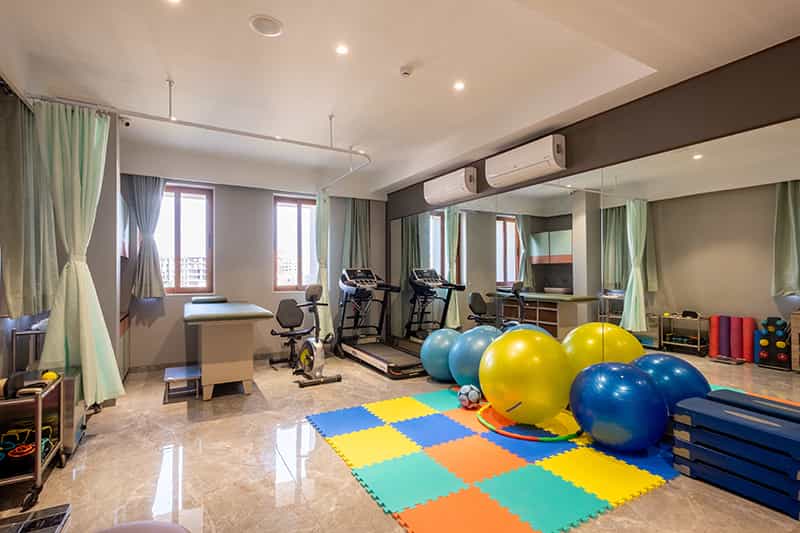
Weight Loss Physiotherapy
Most men and women consider physiotherapy as a means of aiding healing post an injury. Still, apart from helping you to recover, physiotherapy can help you achieve your desired weight loss. At Rupal Hospital, our Physiotherapist work to develop an individualized
physical activity program, making sure your objectives are satisfied, providing complete weight loss management solution.
Antenatal Fitness Classes
Pregnancy and childbirth can bring immense joy, but a pregnant woman’s body goes through tremendous changes that can notably affect her day-to-day life. In a relatively short period, the organs’ pressure rises, and increased weight is carried. While some uneasiness is expected, the discomfort can get overwhelming. At Rupal Hospital, we offer short term and long term antenatal pregnancy classes. In these classes, our physiotherapist educates women on the importance of adopting healthy lifestyle interventions, which include exercise, yoga, posture training, gharbhasanskar, breathing exercises, etc. We have special couple sessions to increase bonding between mom and dad and reduce their anxiety level during the most delicate time of their life.
Postnatal Fitness Classes
Our Postnatal fitness classes encourage you to start a few exercises as soon as possible after delivery. It gives you more information on how to look after yourself and what you need to be careful of. The exercises conducted during a PNC are safe; they will help you recover, allow you to reduce your post-pregnancy weight gain, and make you feel good about yourself. The physiotherapist in charge of you will carry the exercises forward with gradual progressions.
Pelvic Floor Rehabilitation
Problems that affect the pelvic floor include incontinence, leaking, and pelvic organ prolapse. Pelvic floor dysfunction is heavily under-reported, as so many people don’t feel comfortable speaking up about it. The goal of a Pelvic Floor Physiotherapist is to improve pelvic floor function through exercises, lifestyle modifications, education, and hands-on treatment to decrease and eliminate your symptoms. This therapy involves assessing and treating a group of muscles involved with urinary, bowel, and sexual function.
Lactation Rehabilitation
Breastfeeding is a learned skill. While it’s a joyful experience, it often does not come naturally. Up to 49 percent of women have trouble breastfeeding on the day of delivery. Physiotherapy plays a vital role in the education of posture and positioning during breastfeeding and provides information and treatment of conditions that new mothers may experience. “Breastfeeding is a matter of concern because it has such a wide range of often under-appreciated consequences.”
Our highly qualified and experienced physiotherapist Dr. Bijal Gandhi is a qualified lactation consultant and runs the first lactation clinic in Surat. This clinic assists young mothers who are having problems with feeding their children.
Diet Counselling

Best Weight loss personalized diet packages- At our diet and nutritionist clinic, we understand how hard it can be to move stubborn belly fat in a short time frame. Hence, our weight loss packages trace the most exceptional fast weight loss plans and packages to offer on a personalized basis.
To learn more about this, pl book an appointment with our certified nutritionist Dr. Kinnari Kothari.
Proper nutrition is essential to healthy living and overall well-being. Our diet counselor and nutritionist play an important role in your health by evaluating your diet and offering you personalized advice. Based on your health goals or medical needs, she will make recommendations and put together customized meal plans.
Our diet counselor and the certified nutritionist Dr. Kinnari Kothari create food plans that are balanced and delicious, and suitable to all food palates to provide the best health and fitness throughout all stages of life.
We offer diet and nutrition guidance for adolescent obesity, pregnancy, lactation, diabetes, hypertension, thyroid problems, and reproductive health, including obesity due to polycystic ovarian syndrome and pelvic floor dysfunction such as bowel incontinence constipation, cancer, and menopause.
Cancer Prevention

Gynecologic cancer affects more than 100,000 women each year. The team Rupal Hospital takes steps to regularly screen patients for gynecologic cancer because the earlier that cancer is diagnosed, the sooner treatment can begin a woman’s chance of survival increases greatly.
What are the common Gynaecologic Cancers?
Gynecologic cancer is a type of cancer that grows on your sexual or reproductive organs. Types of gynecologic cancers include Cervical, Breast, Uterine, Ovarian, Vulvar, and Vaginal.
All women are at risk of gynecologic cancer, and your risk increases as you get older. As a preventive measure, we regularly screen for gynecologic cancers at Rupal Hospital for early detection and treatment.
How common is Breast Cancer and how can we detect it earliest?
1 in 8 women will develop breast cancer in their lifetime. But with early detection, the five-year survival rate is almost 100%.
Measures for early detection of Breast Cancer:
Breast Self-Awareness: We encourage you to develop a general awareness of how your breasts look and feel and report any doctor changes. Changes could include a new lump or mass, skin dimpling, swelling, redness, or abnormal nipple discharge.
Clinical Breast Exams: Beginning at age 40, we recommend getting an annual breast examination by a Gynaecologist.
Mammography: All women should have a mammogram at least once every 1-2 years beginning at age 40. If you’re at high risk for breast cancer (if breast cancer runs in your family or any other predisposing factors), you may need to start having mammograms at an earlier age or get checked more often.
What is Mammography and what will be your experience at our Rupal Hospital?
It’s a machine that uses low-energy X-rays to examine the human breast used as a diagnostic and screening tool. The goal is to detect breast cancer at an early stage. Like all X-rays, it uses doses of ionizing radiation in a very minimum amount to create images. These images are then analyzed for any abnormal findings.
Our hospital offers mammography and breast ultrasonography most comfortably by our experienced and knowledgeable female mammography experts, and assistants (Vama – Our sister concern) have the most women-friendly Mammography services center in Surat with a state-of-the-art setup and soothing ambiance.
What is Cervical Cancer and how do you screen for cervical cancer?
Cervical cancer occurs in the cervix(The lowest portion of the uterus), most commonly caused by infection of various strains of Human Papilloma Virus (HPV). It’s the leading cause of gynecologic cancer death in Indian women. Still, with advances in screening and treatment, gynecologists can detect changes in cervical cells early to improve your health and outcomes.
We use two simple tests to screen for cervical cancer:
- Pap test(Conventional or liquid-based cytology-LBC)
- Human papillomavirus (HPV) test
In the Pap test, cells from your cervix are collected either on the slide or in specialized liquid and then tested to view for abnormalities. An HPV test checks if you have this common sexually transmitted disease (STD) that can cause cervical cancer.
How often should I have a Pap smear?
Having regular Pap smears is one of the most important steps you can take to prevent advanced-stage cervical cancer. For healthy, low-risk women between the ages of 21 and 65, Pap tests are generally recommended every three years.
At the age of 30, many women can opt to continue having a Pap test every three years or start having a combined Pap/HPV test once every five years.
If you’ve had abnormal Pap results or previous cervical cancer diagnosis in the past, however, you may require more frequent Pap tests.
Who should get the HPV vaccines to prevent cervical cancer and how many doses?
HPV vaccines are licensed for use in females aged 9-45 years; however, the preferred target age group is 9-14 years. It is highly recommended for girls and women aged 13 to 26 years who have not yet been vaccinated.
Girls who start the vaccine series before their 15th birthday need only two doses 6 months apart to be fully protected. After 15 years of age, 3 doses are recommended.
Laparoscopy & Hysteroscopy
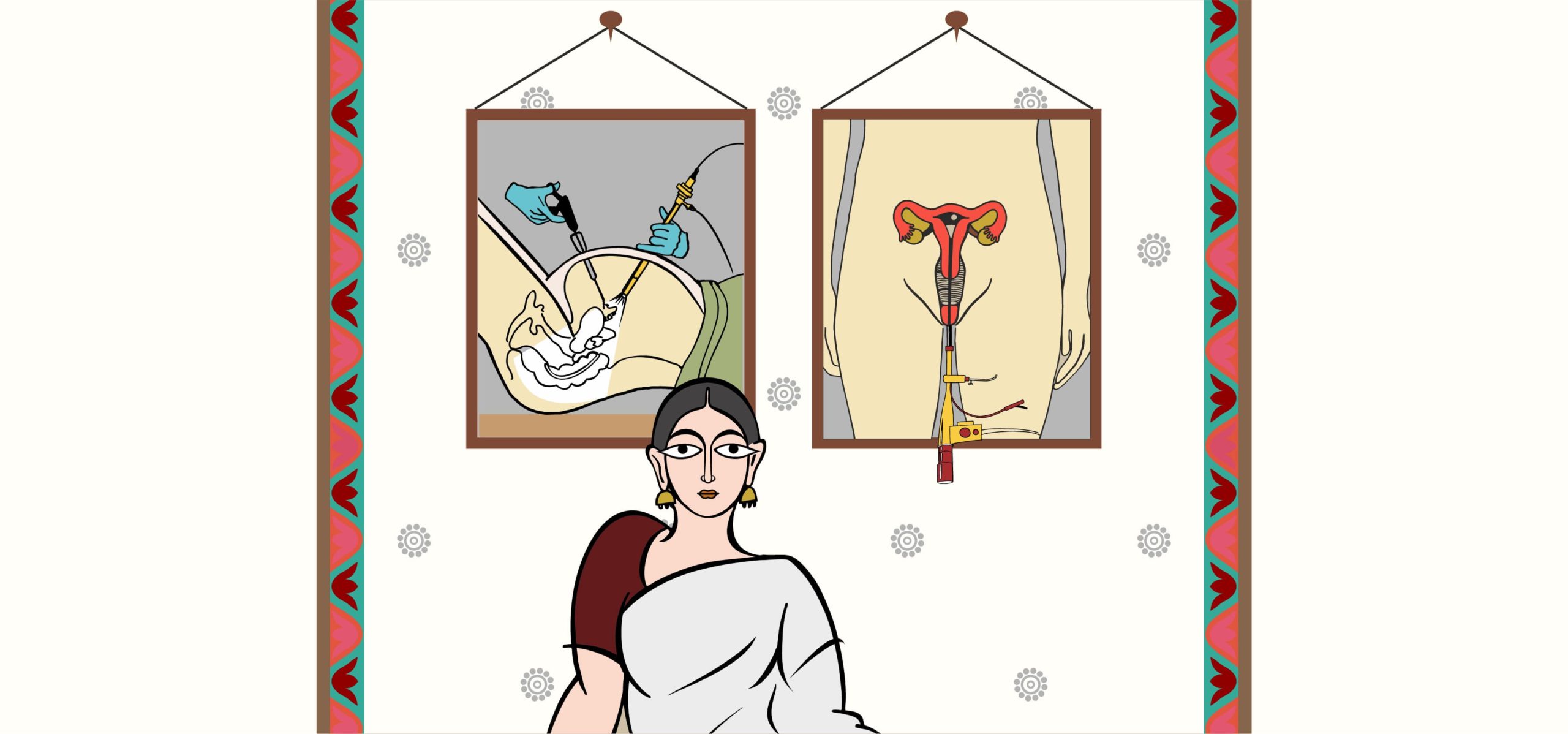
We were amongst the first few gynecologists to start laparoscopic surgeries in Surat and South Gujarat in 1978 and must have performed thousands of laparoscopic procedures so far. Rupal Hospital is having one of the most technologically advanced operation theatres and having the world’s best endoscopic types of equipment from Karl Storz(Germany), Johnson and Johnson(USA), Covidien(USA), and Stryker(USA) for all advanced laparoscopic surgeries. Almost all gynecological and other laparoscopic surgeries are performed by our well trained and most experienced laparoscopic surgeons.
What is Laparoscopy?
Laparoscopy is a minimally invasive procedure to view your pelvic organs and address many gynecological problems internally. This is accomplished by using a fiber-optic camera passed through a tiny incision in the abdomen.
What is Diagnostic Laparoscopy?
It is used to internally view the reproductive organs and assist in diagnosing a problem. It is useful in the evaluation of infertility sometimes to find our reason for pelvic pain.
What laparoscopic surgeries are performed at Rupal Hospital for Women?
- Laparoscopic Hysterectomy.
- Laparoscopic Myomectomy.
- Endometriosis.
- Ovarian Cysts.
- Ectopic Pregnancy.
- Tubal Ligation (Family Planning Surgery).
- Cervical Cerclage.
- Appendicectomy.
- Gallbladder Removal (Cholecystectomy).
- Hernia Repair, and many more.
What are the advantages of Laparoscopy?
Laparoscopy is a minimally invasive approach over more traditional methods of surgery.
-
- Less pain.
- Reduced blood loss.
- Less time in hospital.
- Speedier recovery.
- Less chance of infection.
- Smaller scars.
- Better outcomes.
- Fewer complications.
What is Hysteroscopy?
A Hysteroscopy is a minor surgical procedure that helps us view inside the uterine cavity for diagnostic and treatment purposes. The procedure is carried out with a hysteroscope, a thin, lighted telescope-like device inserted into the vagina and transmits clear, magnified images to a video monitor in real-time.
What procedures are done by Hysteroscopy?
Diagnostic Hysteroscopy is done to evaluate the uterine cavity in infertile patients, or sometimes it is necessary to rule out the cause for abnormal uterine bleeding.
Operative hysteroscopic procedures performed at Rupal Hospital are:
- Polypectomy.
- Myomectomy (Submucous Fibroid Removal)
- Septum Removal (Metroplasty)
- Adhesiolysis for Intrauterine Adhesions
- Tubal Cannulation for Proximal Tubal block.
Women's Health Checkups

Preventive health checkups are beneficial for detecting all types of illnesses and risk factors. Experience personalized, preventive, and holistic health screening options at Rupal hospital. We have a range of packages based on your lifestyle and age.
Our sister concern Vama Wellness Centre for Women offers the following Health packages:
- Healthy She “Dashing” package (For < 40 women)
- Health She “Dynamic” package (For > 40 women)
- PCOS package (for young women having PCOS and excessive weight)
- Pre-marital health check-up and counseling (thealth as they prepareo be married couples to understand their state of to tie the knot)
Neonatal Intensive Care

New-born babies who need intensive medical care are often put in a special area of the hospital called the Neonatal Intensive Care Unit (NICU). Babies who need intensive care do better if they are born in a hospital with a NICU than if they are moved after birth. Working towards complete perinatal care, Rupal Hospital intends to offer the best mother and child care to our patients under one roof.
NICUs may also care for babies who are not as sick but need specialized nursing care, especially when they have borderline prematurity, low birth weight, those who have developed neonatal jaundice, etc.
Joining hands with the most experienced team of South Gujarat’s leading pediatric super speciality-Anand Children hospital, we are ready to provide compassionate tender care for our newborns needing basic NICU care. The experience of senior pediatrician Dr. Chetan Shah and the expertise of a leading neonatologist Dr. Sachin Shah will mentor our NICU to manage common neonatal problems in the house. We have facilities for warmer, phototherapy, iv fluids, and oxygen to our inborn new-borns in our hospital premises.
Paediatric and Immunization Clinic
The team of Anand children Hospital offers daily pediatric consultations and routine vaccinations to children at Rupal Hospital.
